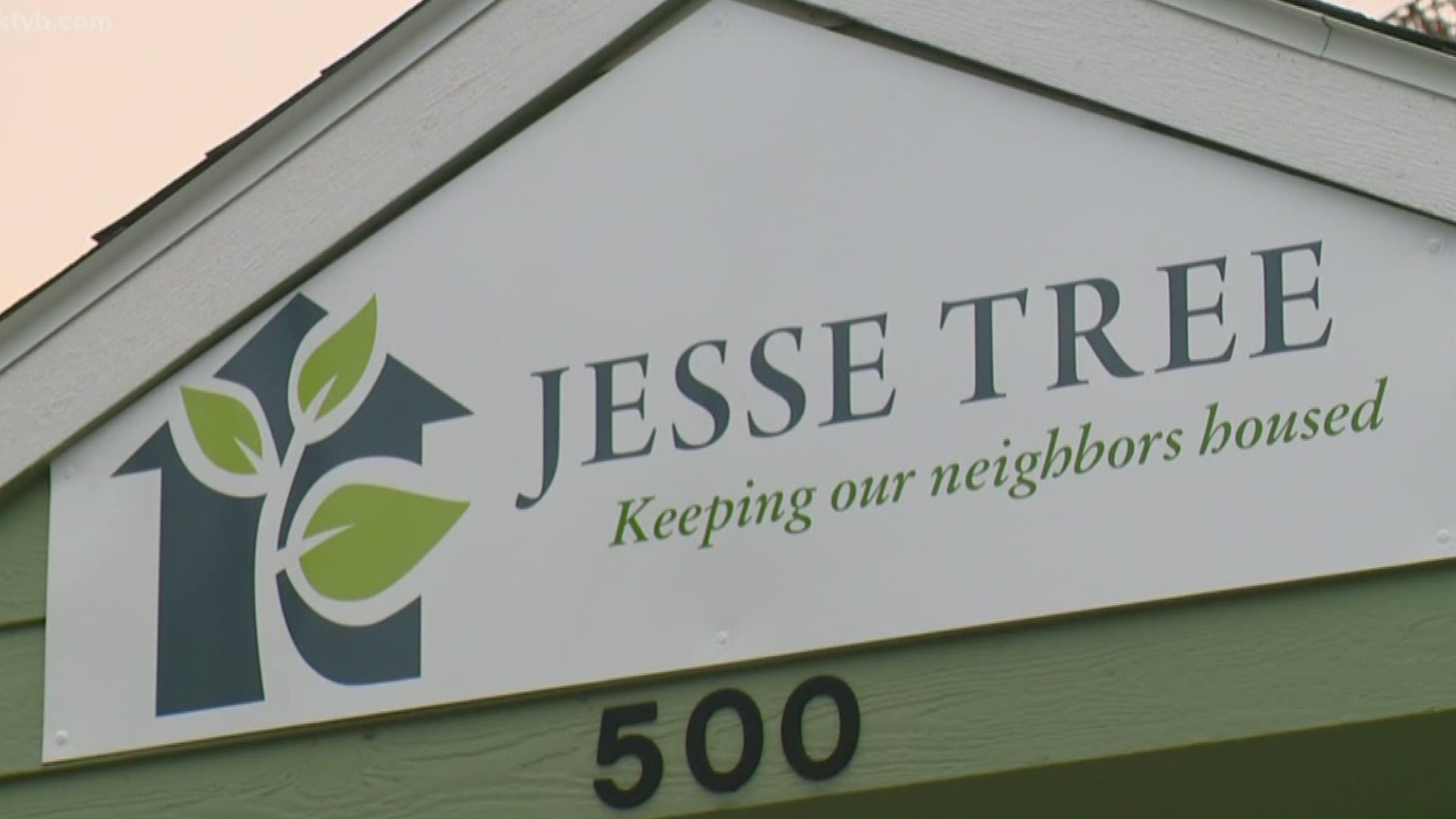BOISE, Idaho — The beginning of a new month can bring many things. It also means rent is due for many Idahoans. This month there may be more people who aren’t able to pay because the coronavirus pandemic and state-ordered social distancing have forced them out of their jobs.
Normally, if someone can’t pay rent, they go through the eviction process through the courts.
However, courts across Idaho will not be hearing most eviction hearings, including for not paying rent. Eviction hearings that are considered an emergency, like if it’s related to illegal drugs, will still be scheduled.
This is happening because the Idaho Supreme Court issued an order putting all non-emergency hearings on hold until after April 15. The order came down a day after the Gov Brad Little’s statewide stay-at-home order was issued.
Both orders were issued to help stop the spread of COVID-19.
One renter who is impacted by the health pandemic is Isaiah Carr. He was a server at The Ram restaurant in Boise. He lost his job after Boise Mayor Lauren McLean ordered all restaurants and café’s to close their dining rooms to flatten the curve of COVID-19.
Idaho COVID-19 latest: Latest news | Map of confirmed Idaho cases | Stay-at-home order details | COVID-19 resources | Testing sites | Employers hiring | Essential business list | Closings | School closings | Help nonprofits| Full COVID-19 coverage
Carr told KTVB he worked at the restaurant as a server for about a year. He last worked for them on March 17.
After he lost that job, he worked for a painting company for a week. That didn’t work out and afterward, he filed for unemployment.
“I'm going to keep looking for work,” Carr said. “I don't want to work somewhere where there is a bunch of people around because I don't want to get the coronavirus.”
Carr and his wife rent an apartment in the Iconic Village Apartments near downtown Boise.
“We pay $780 for rent and then utilities and everything combined makes it about $1,100 or so a month,” he said.
He's still waiting to see if he will qualify for unemployment and how much he will get out of it. He told KTVB he has enough in savings to cover rent for April, but not enough for May.
“Well we have two cars so worst-case scenario we could live in our cars,” he said. “We have family and stuff and if I had to, we could move out of state or something.”
Jesse Tree is a nonprofit based in Boise. Their main goal is to help people like Carr who cannot come up with the money to pay rent.
Since Idaho started getting positive cases, and more businesses were forced to close their doors, they’ve been receiving a lot of phone calls asking for help.
“We've never received 30 to 40 calls a day before this, this is definitely a new challenge for us,” Executive Director Ali Rabe said. “We're pretty underwater with requests for help right now.”
The nonprofit helps people stay in their homes. They offer supportive services like connecting households to other services and resources, pairing them up with case managers to work towards long-term financial stability, and even paying rent for individuals once in a two-year period.
Their primary goal is to keep people from being evicted.
“Our concern is that we will see a lot of evictions,” Rabe said. “There is an eviction moratorium in place right now through April 15 in the state of Idaho.”
Rabe is referencing the state's Supreme Court order to reduce non-emergency operations. She told KTVB how the eviction process plays out normally.
Renters are sometimes given a grace period to come up with rent, usually four days. Once that period is over, the landlord can issue a three days’ notice. This gives the tenant three days to either pay rent or leave the property.
If neither of those things are completed after three days, the landlord will have legal cause to file an eviction notice with the court.
“Those for happening for non-payment of rent are temporarily on hold,” Rabe said.
According to a letter from the Fourth Judicial District in Idaho, eviction cases can still be filed during this period, and someone will be available to mediate the case.
That same letter states that an eviction case that is not drug-related may still be heard if it is deemed an emergency. In order to do this, the landlord would have to file an affidavit with the complaint lining out why they believe their case is an emergency.
A judge will review that affidavit and complaint. If he or she deems it an emergency, the court will contact the landlord with more information.
Non-emergency matters will be tentatively set for court beginning in May.
Even though there is an order in place putting most evictions on hold, Rabe’s advice is to try not to fall behind on rent. She recommends renters to look over their budget and pay what they can. Above all, keep an open dialogue with the landlord.
“Communicate with your landlord, tell them exactly what is going on and ask them if they're willing to work with them on the rent and make a payment plan,” she said.
The high court's order was designed to line up with the governor’s statewide stay home order. Both of these orders are set to expire on April 15. However, a spokesperson for the Idaho Supreme Court said if the governor’s order is extended, they will review their order. This means they could open all operations again, extend their current order, or issue a new order reducing court operations.
Facts not fear: More on coronavirus
See our latest updates in our YouTube playlist:
At KTVB, we’re focusing our news coverage on the facts and not the fear around the virus. To see our full coverage and the latest COVID-19 case numbers, visit our coronavirus section here: www.ktvb.com/coronavirus
Coronavirus resources:
Closures

